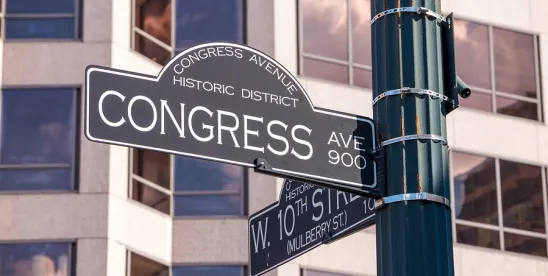The list of pending issues that Congress could consider during the lame duck session in 2024 continues to grow. The list includes “must pass” items, including appropriations to fund the government through the remainder of Fiscal Year (FY) 2025 and the National Defense Authorization Act (NDAA). This blog focuses on issues not getting the congressional attention they deserve.
Members of Congress returned to Washington, D.C., from summer recess for a three-week work period in September. Unsurprisingly, the work period was minimally productive. The most important issue facing Congress in September was funding the government before the end of the FY on September 30, 2024. After one failed attempt on September 18 to pass a Continuing Resolution (CR) (i.e., short-term funding extension based on current FY spending levels) in the House of Representatives, Congress, on September 25, 2024, passed H.R. 9747, the Continuing Appropriations and Extensions Act, 2025.
On September 26, President Biden signed Public Law 118-83, which averted a government shutdown weeks before an election and extended several important programs and authorities, including the National Flood Insurance Program, the Department of Homeland Security National Cybersecurity Protection System, and several Department of Agriculture programs and authorities.
The federal government FY runs from October 1 through September 30. Funding the federal government requires enactment of twelve appropriations bills by both the House of Representatives and Senate before the President signs them into law. For FY 2024, the House of Representatives passed five of twelve bills; the Senate passed zero, thereby requiring passage of the CR.
When Congress returns to Washington, D.C., during the week of November 11, it will resume consideration of the individual appropriations bills with the goal of passing all twelve before the CR expires on December 20. If all twelve bills are not enacted individually, some or all may be considered in one big or several smaller groups, creatively referred to as an omnibus or mini busses.
The period between an election to elect new members of Congress and the convening of a new Congress is known as a lame duck session. Lame duck sessions of Congress have become increasingly common. Dating back to the 103rd Congress in 1994, there have been lame duck sessions in every Congress except the 104th (1996). From the 103rd Congress through the 109th Congress, the average length of a lame duck session was just over 18 days. From the 110th Congress (2008) through the 117th Congress (2022), the average length of a lame duck session was 52.5 days. Five of the last six congressional sessions ended on January 3 hours before a new Congress was scheduled to convene by law. The exception was the 104th Congress that adjourned January 2.
In the wake of Hurricanes Helene and Milton, Congress will undoubtedly need to pass emergency assistance funding to help people in the states and communities devastated by these storms.
Another high-priority issue that Congress may consider during the lame duck session is the Farm Bill, which was temporarily extended in 2023. If Congress does not reauthorize the Farm Bill during the lame duck session, then the Farm Bill will likely be extended again into 2025.
Other pending legislation that Congress could consider during the lame duck session includes bills to address energy permitting reform, artificial intelligence (AI), kids online safety, data privacy, drug pricing, Covid-19 telehealth policies, and rail safety. While it is possible that Congress could enact legislation on one or more of these issues during the lame duck session, it is just as or more likely that these bills will need to be reintroduced in the 119th Congress. While it may seem early to look ahead to 2025, it bears noting that tax issues will loom large over the 119th Congress due to the pending expiration of provisions in the 2017 tax reform legislation.
There is no shortage of issues on which Congress could act during the lame duck session. There are, however, necessary items that must be addressed, but little time to do so. The results of the November 5 elections will dictate Congress’s direction.
The pending departure of at least 52 retiring Representatives and ten Senators will affect Congress’s ability to enact legislation during the lame duck period. Not only will these Representatives and their staff be working in temporary quarters as their offices are prepared for new occupants in the 119th Congress, but their minds will also be preparing for their next jobs. An additional consideration and distraction during this time is that the orientation for newly elected members of Congress is scheduled for the week of November 11 and may last into the following week.
What Congress may or may not accomplish during the lame duck period remains unclear. Keep in mind that the countdown to the convening of the 119th Congress at noon on January 3 is underway, as is the countdown to the Inauguration of the next President on January 20.



 />i
/>i

